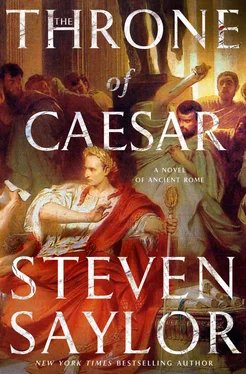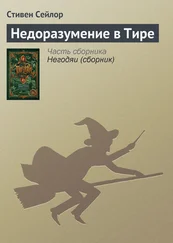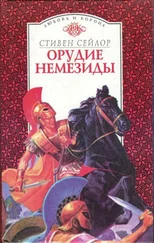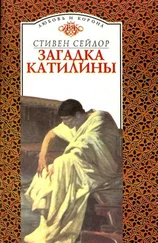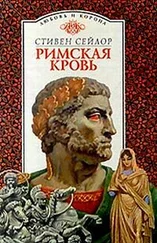Стивен Сейлор - The Throne of Caesar
Здесь есть возможность читать онлайн «Стивен Сейлор - The Throne of Caesar» весь текст электронной книги совершенно бесплатно (целиком полную версию без сокращений). В некоторых случаях можно слушать аудио, скачать через торрент в формате fb2 и присутствует краткое содержание. Год выпуска: 2018, Издательство: St. Martin's Press, Жанр: Исторический детектив, на английском языке. Описание произведения, (предисловие) а так же отзывы посетителей доступны на портале библиотеки ЛибКат.
- Название:The Throne of Caesar
- Автор:
- Издательство:St. Martin's Press
- Жанр:
- Год:2018
- ISBN:нет данных
- Рейтинг книги:5 / 5. Голосов: 1
-
Избранное:Добавить в избранное
- Отзывы:
-
Ваша оценка:
- 100
- 1
- 2
- 3
- 4
- 5
The Throne of Caesar: краткое содержание, описание и аннотация
Предлагаем к чтению аннотацию, описание, краткое содержание или предисловие (зависит от того, что написал сам автор книги «The Throne of Caesar»). Если вы не нашли необходимую информацию о книге — напишите в комментариях, мы постараемся отыскать её.
The Throne of Caesar — читать онлайн бесплатно полную книгу (весь текст) целиком
Ниже представлен текст книги, разбитый по страницам. Система сохранения места последней прочитанной страницы, позволяет с удобством читать онлайн бесплатно книгу «The Throne of Caesar», без необходимости каждый раз заново искать на чём Вы остановились. Поставьте закладку, и сможете в любой момент перейти на страницу, на которой закончили чтение.
Интервал:
Закладка:
“That’s one way of putting it. The dead do have a habit of taking vengeance on the living. Of course, once Caesar is off to Parthia, the excitement of the new war will supplant the bitterness of the old war. No one will remember dead Cato if Caesar returns with a living Parthian king in chains to be paraded in yet another triumph.”
This idea made Meto smile.
“And then there’s Fulvia,” I said.
“Another woman.”
“Yes, and even more formidable, I suspect, than Porcia or Servilia.”
“Not even Fulvia could turn Antony against Caesar.”
“No? I think she has even more sway over her husband than does Porcia over Brutus. And she’s driven by something stronger than any grudge: ambition. I mean the sort of grand, earth-shaking ambition that Caesar himself possesses. Ambition that transcends marriages and military alliances, disappointment and death. Ambition that only grows stronger each time it’s thwarted.”
“You make Fulvia sound almost supernatural, like a Fury, or some sorceress from the myths, like Medea.”
I raised an eyebrow. “I wouldn’t be at all surprised if she practices sorcery of some sort. She also has a veritable army of spies, informants she’s known and nurtured for years, since her first marriage, to Clodius.”
“But could Fulvia turn Antony against Caesar?”
“The two men have had their ups and downs. Antony must be disappointed that he’s not accompanying Caesar to Parthia.”
“He’ll have the honor of governing Rome instead.”
“Which he’s done before, not entirely to Caesar’s liking, which caused the last rift between them. If Antony were to turn against Caesar, Fulvia would make a powerful ally.”
Meto looked thoughtful. “You also saw Cassius? ”
“Briefly, at Brutus’s house, whirling his little nephew in the air. He seemed harmless enough—though he did give the child a nosebleed! And Decimus Brutus, who’s not on Caesar’s list. And Cinna.” I sighed. “Far from posing a threat, Cinna seems disposed to do anything the Dictator asks, no matter how radical. You must know about this legislation he intends to introduce on Caesar’s behalf, allowing the Dictator to take as many wives as he wishes.”
Meto smiled. “That law is likely to be the first piece of legislation on which Senator Gordianus will be called to vote.”
I groaned. “Perhaps I won’t be inducted until late in the day, after the law’s been voted on.”
“I suspect your induction will take place early on, so don’t count on missing the vote. Caesar likes to test the loyalty of a new senator as soon as possible.”
“And voting in favor of that measure will certainly be a test!”
“But I thought Cinna was your friend.”
“Cinna is my drinking companion. Because we share the occasional cup of wine doesn’t mean I want to support his political ambitions, whatever they may be. I’ve never even read the man’s poems.”
“You haven’t?” Meto peered at me in disbelief. “But Papa, how is that possible? Everyone’s read the Zmyrna .”
“No, Meto, not everyone, because I haven’t read it.”
He leaned back and stared at me, genuinely taken aback. He scanned the shelves around us. “Amid all these scrolls, there’s no copy of the Zmyrna ? People say Cinna is the world’s greatest living poet.”
“Is that your opinion as well, Meto?” A writer himself, having helped Caesar recount his military campaigns, my son had strong ideas about both poetry and prose.
“With Catullus gone, yes. I know Caesar thinks so.”
“I’m surprised the Dictator has time to read. I don’t. I still haven’t managed to reach the end of Caesar’s Gallic War .” Despite loving Meto, I sometimes found his collaborations with Caesar a bit of a slog, with too much detail about siege engines and trench digging and other minutiae of warfare .
“Then by Hercules, Papa, put aside the Gallic War and pick up the Zmyrna . Although…”
“Yes?”
“You might not like it, after all. Not to your taste, perhaps.”
“How so?”
“For one thing, the language. Very ornate and deliberately obscure, loaded with convoluted metaphors and antiquated words. Beautiful to hear but often difficult to comprehend. What was Cicero’s critique? ‘Certain poets pay more attention to sound than to sense.’”
“So not everyone agrees with you and Caesar about Cinna’s greatness?”
“Cicero might not think Cinna great, but he’s read him nonetheless. The language is certainly difficult. Also, given your sentiments on certain subjects … your deeply felt sense of right and wrong…”
“What has that to do with Cinna?”
“Papa, do you have any idea what the Zmyrna is about?” Meto’s tone was at once exasperated and sad.
“Well, no. To be honest, I haven’t a clue.”
“Incest.”
Now I was taken aback. “What do you mean, incest?”
“Well, in this case, between a father and daughter. You do know who Zmyrna was?”
“I’ve heard of her, of course. There’s a Greek city with that name, though I usually see it spelled with a Latin ‘S’ instead of the Greek ‘Z,’ and I’m not sure the city has anything to do with the girl. As for her story…” I shook my head. “Something to do with myrrh? I seem to recall that the word ‘myrrh’ is somehow derived from ‘Zmyrna’…”
“Papa, what a muddle your mind must be.” Meto sat back and folded his arms. “The Zmyrna isn’t unique, or even unusual—the incest theme, I mean. It’s part of a whole genre of incest poems—forbidden and usually tragic love between fathers and daughters, mothers and sons, sisters and brothers.”
“Tragic?”
“Someone usually ends up dead, or metamorphosed by a god into something not human—as happens in the Zmyrna. ”
“The death or the metamorphosis?”
“Both. But seriously, Papa, have you never read Parthenius? Or Euphorion? Or—”
“Seriously, Meto, I have not. They’re merely names to me. I told you, son, I have no time to read modern poetry.”
His face brightened. “Well, then—now I know what I must give you for your birthday. It falls on the twenty-third day of this month, doesn’t it?”
“I think so.…”
“Are you not sure?”
“Is anyone sure of his birthdate anymore, after all that fiddling Caesar did with the calendar? Adding sixty days to the year of his triumphs—which meant my next birthday was postponed for sixty days, and I actually turned sixty-five sixty days before the twenty-third day of Martius arrived last year. Thanks to the Dictator, even a man’s birthday is no longer his own.”
“On the contrary, Papa. By fixing the calendar, Caesar restored each man’s birthday to its rightful date and season. Remember how badly the old calendar had fallen behind the actual seasons? The old calendar had lost sixty days, so that your birthday was falling in the actual month of Januarius, never mind that the calendar read Martius. But last year, thanks to Caesar, the twenty-third of Martius arrived when it should. ”
“Still, it seemed quite strange that a man could be, say, thirty years old one day, and twenty-nine the next, if his birthday happened to fall at midnight on the day before Caesar added the extra sixty days.”
“Now you’re just being nonsensical, Papa. But since you don’t trust the new calendar, I won’t wait until the twenty-third to give you your present. We shall go and get it right now.”
“Go where?”
“Don’t you need to shop for your new toga?”
“I’m told I should purchase it from a certain Mamercus and no one else. But you can’t buy my toga for me.”
Читать дальшеИнтервал:
Закладка:
Похожие книги на «The Throne of Caesar»
Представляем Вашему вниманию похожие книги на «The Throne of Caesar» списком для выбора. Мы отобрали схожую по названию и смыслу литературу в надежде предоставить читателям больше вариантов отыскать новые, интересные, ещё непрочитанные произведения.
Обсуждение, отзывы о книге «The Throne of Caesar» и просто собственные мнения читателей. Оставьте ваши комментарии, напишите, что Вы думаете о произведении, его смысле или главных героях. Укажите что конкретно понравилось, а что нет, и почему Вы так считаете.
